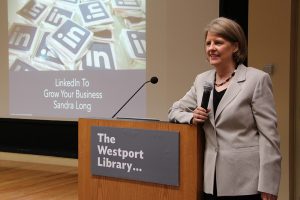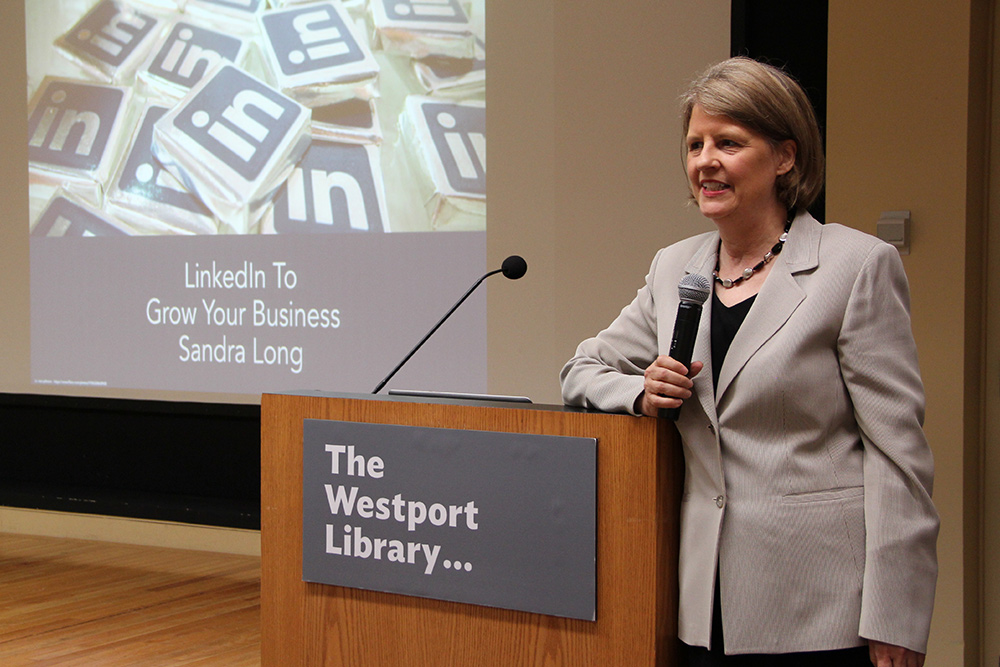 In a matter of months, the U.S. has gone from experiencing historically low unemployment to an historic number of layoffs, leaving millions of people out of work. But abrupt career changes are not confined to a global pandemic. Even in good economic times, people may be unceremoniously let go, may need a line of work that better accommodates family or other commitments, or may just secretly yearn for a new career that they are certain they’d find more fulfilling. Fear not. Switching gears is not only possible but eminently doable – provided you take time to reflect on what you’d like your next adventure to look like and take advantage of the available resources to help you succeed.
In a matter of months, the U.S. has gone from experiencing historically low unemployment to an historic number of layoffs, leaving millions of people out of work. But abrupt career changes are not confined to a global pandemic. Even in good economic times, people may be unceremoniously let go, may need a line of work that better accommodates family or other commitments, or may just secretly yearn for a new career that they are certain they’d find more fulfilling. Fear not. Switching gears is not only possible but eminently doable – provided you take time to reflect on what you’d like your next adventure to look like and take advantage of the available resources to help you succeed.
“By failing to prepare,” Benjamin Franklin once said, “you are preparing to fail.”
But for all his astonishing insight, Franklin was unable to consider the fact that companies in the future might let go of long-term employees at a moment’s notice, leaving them little if any room to prepare.
For three decades, Sandra Long of Westport worked as a top sales executive for Pitney Bowes, including one stretch as a vice president of sales. A few years ago, there was a major restructuring that suddenly hastened the end of her career at the technology giant.
Having lost her job with the company after 30 years, you might think that Pitney Bowes was the last name she’d have preferred to hear mentioned on any given day. But after founding Post Road Consulting, a LinkedIn marketing advisory firm, she now counts Pitney Bowes as one of her most important clients, and that’s because she kept in close contact with a network of former colleagues.
That’s just a single tale of many that show how the world of exchanging careers – as opposed to merely changing jobs – can be full of surprises. But as a stroll down Exchange Lane will prove, it can also be full of challenges and opportunities, not to mention anxiety and excitement.
“Now I work with companies, universities, associations, and individuals, teaching them how to turn LinkedIn into the most effective sales and career tool,” explains Long, whose book, “LinkedIn for Personal Branding: The Ultimate Guide,” covers many career tips. “When you’re looking for a new profession, former colleagues can make all the difference in the world. My client list is comprised of people I worked with years ago. Everyone should stay in touch with their network.”
It’s an important tip for any successful career-switching scenario. Ben Franklin would approve.
Tom Truitt of Fairfield had a similar experience – with an interesting twist. In his case, former clients of his photography business actually sparked the idea for his next professional endeavor.
Truitt spent 15 years as the proprietor of T-Square Productions, a corporate and children’s fashion photography business. Among his subjects were dozens of medical professionals in New York. But he had grown disgruntled with the frequent schedule changes, chasing bills, creative clashes with clients…
“I had fallen into a niche that was artistically stifling, plus I wasn’t making enough money to support a Fairfield County lifestyle,” Truitt recalls. “It was giving me more stress than I could handle.”
He began to contemplate putting T-Square behind him but had no idea what to replace it with. Then he recalled all the conversations he had overheard at hospitals and health care facilities about the growing need for qualified doctors. So, with a friend, Truitt founded Alpha Medical Group, a company that facilitates the placement of physicians at hospitals and medical centers. He sold his share in 2017 and built a new one, Clear Staffing Solutions.
“When I was a full-time photographer, if I didn’t work, I didn’t get paid,” Truitt says. “So the idea of having a business with employees that can keep producing, even if I have to go somewhere or step away for a while, was very appealing.”
He was scared at first; he had no fiscal stability when he opened the first agency. Fortunately, he found his footing and the business began to prosper. Truitt now advises people who are looking to switch professions to create a plan of action that includes a way to survive in the interim. Plus, he adds, it always helps to have some passion for what you want to do.
Marie Simons of Branford couldn’t agree more. “When it comes to a career,” she says, “my first objective is to work with people who want a positive outcome. Without that, I wouldn’t even want a career.”
Simons spent several years as an internal sales specialist for Fujifilm Medical Systems, formerly of Stamford. Like many large corporations, Fujifilm experienced major changes in recent years, and when departmental shuffles triggered her exit, she decided to return to an industry of which she had been a part more a dozen years earlier. She is now a real estate agent with an office of the William Raveis agency in her hometown. She had left that field when home sales nationwide went into a serious decline and didn’t think she’d ever return.
“I was getting used to a career in medical equipment and never thought I’d go back to real estate,” Simons shares. “But sometimes you just have to use the skills and talents you already have for whatever works best for you. I applied mine to a new career and then just let even more passion grow from there.”
Simons enjoys helping people realize their dream of owning a new home, and now admits that going back into the field after more than a decade away was an easy switch.
But it isn’t always easy. After all, not everyone has an effective network or an earlier career to return to. Sometimes the process requires a deep dive into internet research, more schooling, or career counseling.
The Gordon Career Center at Wesleyan University in Middletown works with many alumni who have been out of school for a while and are now trying to determine what kind of post-graduate study to pursue. “The most important thing when seeking a new career, especially in a new field, is to have a professional and personal narrative that helps prospective employers understand what transferable skills you have, and why you’re looking for a new role,” counsels Sharon Belden Castonguay, executive director of the Gordon Career Center. “The emphasis should be on why you’re moving toward something, not on why you’re walking away from what you did before.”
According to most experts, confidence is also an imperative ingredient.
Before founding the Storyteller’s Cottage in Simsbury, local resident Lisa Natcharian had been a teacher, public relations consultant, and freelance writer who, by her own admission, was never entirely satisfied with her professional life. She came across a membership-based store down south that was devoted entirely to video game players, and also had a cafe and rooms to rent for private events. In her mind’s eye, Natcharian, an unabashed book lover who was already looking for something new, replaced video games with books and realized she suddenly had a business model for her own idea. She opened the Storyteller’s Cottage in 2017.
“When I was describing what I wanted to do to some of the people I hoped could help me create the cottage, I made sure I sounded confident, even if I may have had a little skepticism,” Natcharian admits. “I discovered that confidence and courage are invaluable.”
The Storyteller’s Cottage, which had been housed in an old Victorian home in the center of town, had become well-known throughout north-central Connecticut for its uniqueness. Book lovers had gone there to read, listen to authors, participate in creating storytelling, and relive famous tales in distinctive group encounters.
“I surrounded myself with people who were not shy about telling me what they thought I was doing right and wrong,” says Natcharian. “That’s what you need when you start a brand-new profession – other opinions.”
Having a distinctive vision also helps.
That’s how Paul Dunn of Madison discovered his new profession. “When my position as a senior project manager at ESPN was eliminated as part of a workforce reduction, I immediately thought about the college environment,” he says. “That’s because one major demographic of the ESPN fan base is comprised of college students about to enter the workforce. So the moment I learned of my impending departure, I thought about my level of comfort with that demographic and realized it could translate to a new career.” All he had to do was find a college with an appropriate spot.
A tall order indeed – but in 2017, Dunn became the coordinator of the Integrative Career Development office at Mitchell College in New London. “I received great support from people in my network, kept an open mind, pursued an industry in which I felt I could make a difference, and never gave up,” he asserts.
It may have been somewhat serendipitous for Dunn to have found an open position at Mitchell so quickly, but then again, that dean of all career-changers, Ben Franklin, had it absolutely right when he said that diligence is the mother of good luck.
Flexibility is also critical. In late summer, Natcharian of The Storyteller’s Cottage made the difficult decision to close her business and move its operations online, due to a drastic reduction in visits caused by COVID-19. The result was a new but related venture: The Storyteller’s Cottage Online Academy at storytellerscottage.podia.com. Its stated mission is “To bring literature to life, both by providing opportunities to bookworms to immerse themselves in their favorite fantasy realms, and by expanding the discipline of storytelling through master classes taught by expert writers, artists and storytellers.”
Asked about it, Natcharian said her clients’ reactions to the switch in business model “have so far all been lovely – lots of comments about how the [in-person] business will be missed. Currently, there about a hundred comments on our Facebook page.”
As for what comes next, she says, “I don’t have any specific contingency plans if the online version of The Storyteller’s Cottage doesn’t work out as planned, but my brain is a constantly-churning idea factory, so I’m sure I’ll think of something else to try! I guess the pandemic has taught me that life never follows a straight path, and that flexibility is key in dealing with the surprises fate may have in store.”
She says in addition to resilience and flexibility, “an ability to read the market in an unsentimental way is necessary to prevent pouring funds into a business model that will no longer be profitable. In other words, it’s important to know when to cut your losses and move on. It was fun while it lasted!”
In addition to journalism, Joel Samberg consults on employee communications, edits books, writes plays, and has one or two other word-related careers. His website can be found at JoeltheWriter.com.







More Stories
Foraging Around the Nutmeg State
Moving Up: Florida to Connecticut for Seasons, Schools and Safety
Listen Here! The Declining Art of Listening